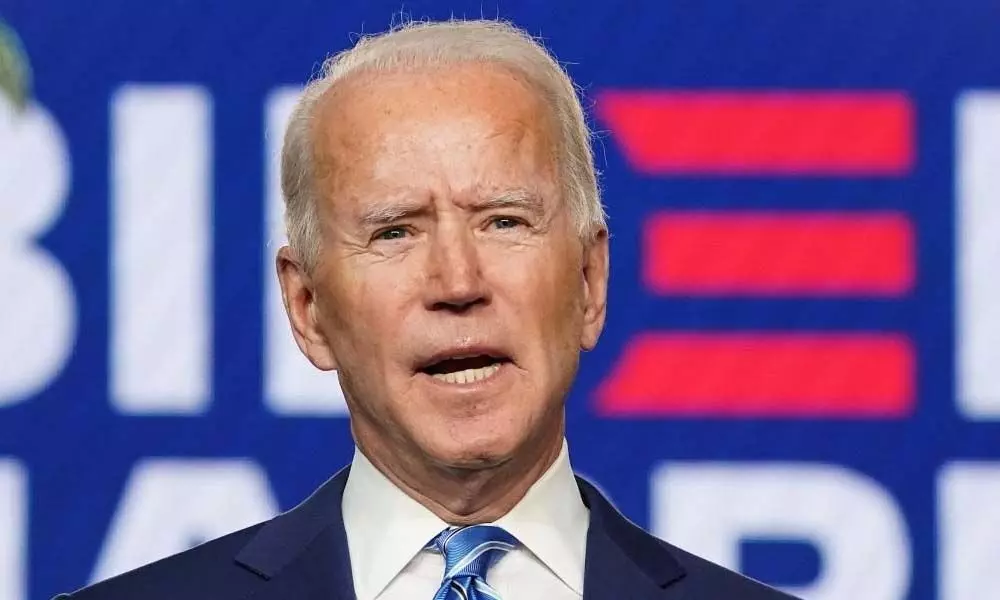Should Biden's alliance with big tech worry us?
The phrase ‘public-private partnership’ has been making the rounds. What does that mean? In practice, a more targeted approach to surveillance
image for illustrative purpose

It would normally be awkward asking a group of companies worth more than $4 trillion for help. But the leaders of Apple Inc, Amazon.com Inc, Microsoft Inc and Alphabet Inc's Google sat up and listened when President Joe Biden sought their cooperation last week in protecting US infrastructure from cyber threats. They weren't just being polite. All four firms are facing lawsuits or probes from both the Federal Trade Commission and the Justice Department. All four need to maintain cordial relations with the US government. Biden probably didn't bring that up during his discussions with Apple's Tim Cook or Google's Satya Nadella at the White House cyber security summit on August 25, but the cases will have hung in the air like an unpleasant smell. Detected by all and never remarked on.
A new wave of antitrust probes over the past year could see regulators break up or fundamentally crimp the way Big Tech does business. That means big tech companies must keep steady diplomatic ties with whoever is in the White House. At the summit, they pledged billions of dollars towards bolstering the security of their products in support of the government's initiative, and that is just the start.
A more challenging task will be finding new ways of working with the US to rein in the growth of ransomware attacks or intellectual property thefts. Remember Edward Snowden's revelations eight years ago? We learned back then that the National Security Agency had probed the data centers of Google and Yahoo! Inc to collect information on millions of US account holders. That disclosure, among others, put a wedge between Silicon Valley and Washington DC.
Tech companies became more privacy focused. Facebook rolled out end-to-end encryption across its messaging services, and Apple refused to build a backdoor for law enforcement into iPhones. Tech giants portrayed themselves less as protectors of America's national security needs, and more as global actors obligated to protect users across many different countries.
Now circumstances have changed. Americans are looking more than ever to their government for help on issues from health to security. Last year was the one of the worst on record for cybersecurity, with more than 150 million people affected by data breaches, according to Statista. Ransomware attacks spiked. Russian hackers infiltrated thousands of US government and corporate targets by launching their hack from inside American servers. The so-called SolarWinds attack was one of the worst cyber espionage incidents in US history, and pointed to a major blind spot for the NSA.
Since Snowden, the agency hasn't been able to monitor domestic networks en masse, and its director, General Paul Nakasone, recently complained to Congress that foreign hackers were exploiting the NSA's inability to "see all of the dots."
Enter Silicon Valley. The August 25 summit between the tech giants and the US government was like a reunion between high school sweethearts years after a horrible breakup. They're both older and wiser. One has an eye-wateringly high salary. And now they need to make the relationship work. The phrase "public-private partnership" has been making the rounds. One chief executive who attended the meeting told the Wall Street Journal that discussions had focused more on "partnerships" than regulations. Nakasone has also touted public-private-partnerships on cyber security.
What does that mean? In practice, a more targeted approach to surveillance. Apple's move to analyze photos on iPhones for potential child sex abuse images is one example. That decision caused outrage among privacy advocates, but it is notably different from the pre-Snowden vacuum-cleaner approach of sucking up masses of data. In this case, Apple can say that it isn't invading a user's privacy unless its system flags them as a "person of interest." For his part, on the day after the summit, Snowden tweeted: "How long do we have left before the iPhone in your pocket begins quietly filing reports about encountering "extremist" political material, or about your presence at a 'civil disturbance'?"
Timing could be everything. Apple launched its controversial and unprecedented device-tracking tech in the middle of a crackdown in China - one of its biggest markets - against technology firms. For all its power and its trillion-dollar market cap, Apple is more beholden to governments at the moment. So are its big tech peers. Biden will find it easier than usual to ask for help with America's national security blind spots. (Bloomberg)

